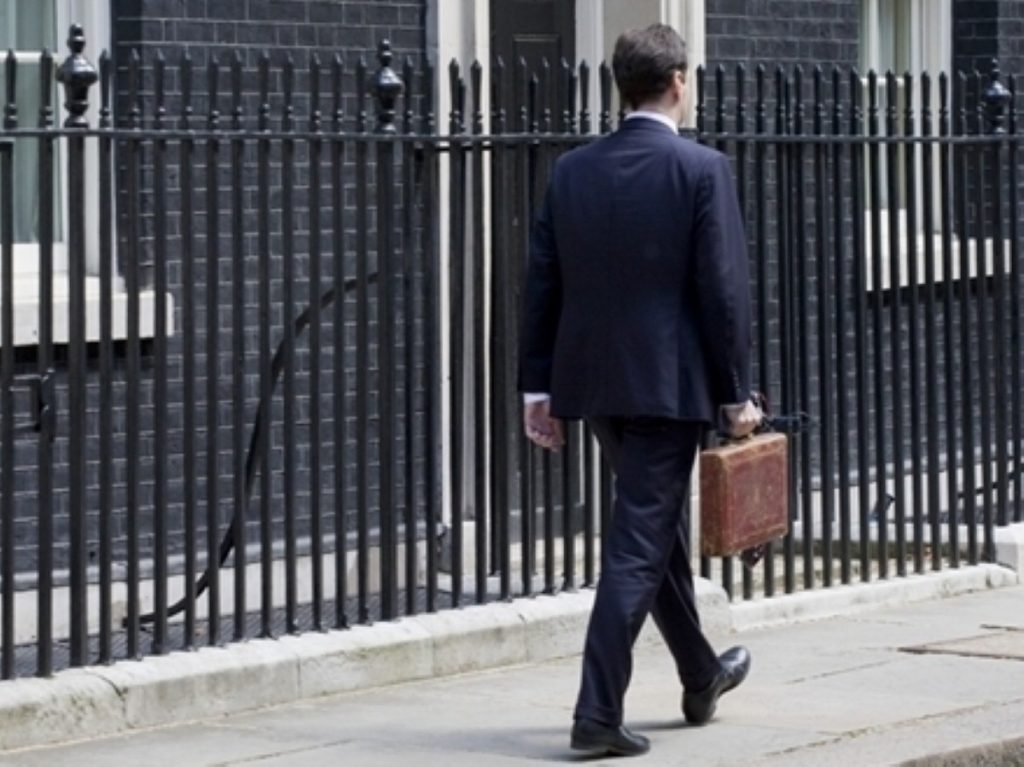Hands tied? Osborne presents ‘growth’ Budget
Chancellor George Osborne has unveiled his Budget for growth, but a fuel duty cut is set to steal the headlines.
There were no net tax rises or further spending cuts announced, as Mr Osborne consolidated the spending cuts announced in last October’s comprehensive spending review.
Instead a raft of small-scale measures aimed at quickening the pace of Britain’s economic recovery dominated the hour-long Budget statement.


Budget 2011 analysis: Don’t mention the spending cuts
“Last year’s emergency Budget was about rescuing the nation’s finances, and paying for the mistakes of the past,” Mr Osborne began.
“Today’s Budget is about reforming the nation’s economy, so that we have enduring growth and jobs in the future.
“And it’s about doing what we can to help families with the cost of living and the high oil price.”
The chancellor, already under pressure to provide hard-pressed motorists with some relief, went beyond expectations by cutting fuel duty by 1p from April 1st.
Budget sketch: Like watching Match of the Day when you know the score
A fuel duty stabiliser is to be introduced, replacing the Labour government’s fuel duty escalator which would have hiked fuel duty by 1p every year for the next four years.
Labour leader Ed Miliband responded by pointing out that the Budget had drastically downgraded growth figures.
“It’s not the chancellor that’s rescuing the country,” he said.
“It’s the country that needs rescuing from this chancellor.”
Growth figures were downgraded from 2.1% predicted for 2011 to 1.7%, and 2.6% for 2012, down from the previous 2.7% prediction. Growth will then peak at 2.9% in 2013.
The Office of Budget Responsibility blamed the negative growth seen in the final quarter of 2010, an increase in world commodity prices and higher-than-expected inflation.
But Mr Miliband added: “Growth is down, down, down. Taking account of all the measures, what is the chancellor’s singular achievement?
“To deliver a budget for growth that downgrades the growth forecasts.”
Mr Osborne took a major step towards reform of the tax system by announcing a consultation on merging national insurance with income tax.
The process would take several years to complete, Mr Osborne conceded, but he insisted it was worth embarking on “this historic step to simplify dramatically our tax system and make it fit for the modern age”.
The personal tax allowance will be increased to £8,105 by April 2012, short of the £10,000 target the Liberal Democrats are seeking by the end of the parliament.
The chancellor also pointed out that 1.1 million people had been removed from paying any tax altogether as a result of the coalition’s actions.
Other measures included a boost to the construction industry, through the distribution of £250 million among 10,000 first-time buyers considering purchasing newly built homes and flats.
Corporation tax is to be cut by one per cent from April 2011, falling to 23% by 2014.
And tax avoidance clampdown is expected to yield an extra £1 billion a year, while plans for a green investment bank are being brought forward a year and handed an extra £1 billion in funding.
Mr Osborne also claimed the most “radical” shake-up of charitable giving in the UK for 20 years, as he announced that the inheritance tax rate will be cut by ten per cent when at least one-tenth of a person’s net estate is donated to charity.
“We want the words ‘made in Britain’, ‘created in Britain’, ‘designed in Britain’ and ‘invented in Britain’ to drive our nation forward,” he concluded.
“A Britain carried aloft by the march of the makers – that is how we will create jobs and support families. We have put fuel into the tank of the British economy.”












